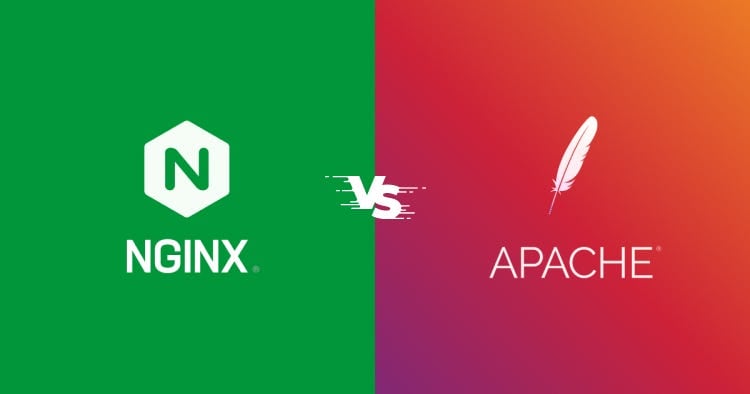
NGINX vs Apache – Which Web Server Is Right for You?
NGINX and Apache are among the most widely used open-source web servers in the world. The debate over which one is superior has been ongoing for years, with each having its own strengths and ideal use cases. Choosing the right web server is crucial for optimizing performance, seguridad, and flexibility according to your website’s needs.

Necesita VPS de nube asequible
Potencia de nube con control completo
In this article, we will provide an in-depth comparison of NGINX and Apache, helping you decide which one is best suited for your requirements.
Why Choosing the Right Web Server Matters
Both NGINX and Apache collectively handle over 50% of the total traffic on the Internet. They are reliable, efficient, and trusted by millions of websites globally. The choice between them ultimately depends on factors such as functionality, seguridad, y flexibilidad.
Understanding Apache and NGINX
apache is managed by the Apache Software Foundation and has been a dominant player in the web server industry since 1995. It follows the latest security standards and provides extensive customization through its modular architecture.
Nginx, launched in 2004, was designed to handle a high number of concurrent connections efficiently. It has gained significant traction due to its speed and scalability, making it a strong competitor to Apache.
Comparison: Functionality, Seguridad, and Flexibility
1. Functionality
- Apache has been a top choice for developers due to its compatibility with various operating systems.
- In terms of speed, NGINX is significantly faster, handling three times more requests per second compared to Apache.
- Apache consumes more server resources when handling hundreds of simultaneous connections, whereas NGINX is optimized to manage up to 10,000 connections efficiently.
Verdict: If speed and handling large connections are your priority, NGINX is the better option.
2. Seguridad
- Both web servers offer excellent security standards, protecting against vulnerabilities and attacks.
- Apache has a smaller code base compared to NGINX, making it more manageable for security updates.
- Apache handles DDoS attacks more efficiently than NGINX due to its security modules.
Verdict: Apache has a slight edge in security due to its long-standing experience and comprehensive security modules.

Servidor VPS de Debian
Seguro, Stable & Affordable
3. Flexibility
- Apache dynamically loads and unloads modules, allowing greater flexibility in configuration.
- NGINX uses an event-driven approach, making it more efficient at handling multiple client requests simultaneously.
- Unlike Apache, NGINX lacks the ability to load modules dynamically, requiring re-compilation for module modifications.
Verdict: Apache offers better flexibility due to its dynamic module management, while NGINX is optimized for high-performance workloads.
Conclusión
Both Apache and NGINX are excellent web servers, and the right choice depends on your specific needs. If you need a high-performance server capable of handling thousands of concurrent connections efficiently, NGINX is the ideal choice. Sin embargo, if you prioritize security, module flexibility, and compatibility, Apache remains a strong contender. Ultimately, the decision should align with your website’s traffic, resource availability, and security requirements.

